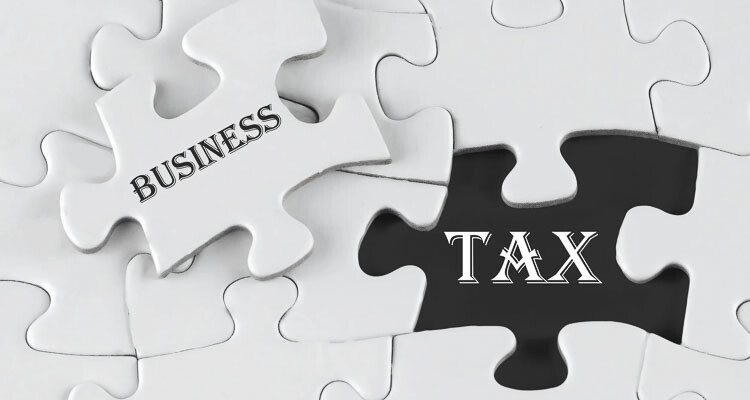
In 2017, the state Legislature established the group to examine the state’s current tax structure with the goal of making the state’s taxes more transparent, stable, fair, and adequate
Brett Davis
The Center Square Washington
The bipartisan Tax Structure Work Group has released its recommendations for improving Washington state’ taxes: replacing the business and occupation tax with a margin tax and giving local governments the ability to expand their property tax limits.
In 2017, the state Legislature established the group to examine the state’s current tax structure with the goal of making the state’s taxes more transparent, stable, fair, and adequate.
TSWG staff from the state Department of Revenue on Thursday afternoon updated the House Finance Committee on its recommendations.
Margin tax
“But it’s basically one rate,” Dean Carlson, tax policy coordinator with the Department of Revenue, said of the margin tax. “Where the B&O tax has multiple rates depending on the activity that you’re doing, this would be one rate.”
Washington’s business and occupation tax is levied upon the gross receipt of businesses making more than $125,000 a year.
Major classification rates for the business and occupation tax are 0.471% for retailing, 0.484% for wholesaling and manufacturing, and 1.5% for service and other activities.
A margin tax would still tax gross receipts – at a $500,000 threshold – but allow businesses to use one of four deductions: cost of goods sold, compensation paid, a fixed percentage of gross receipts, and a flat amount.
The remaining “margin” would then be taxed at a single rate.
“So, the margin tax revenue neutral rate was calculated at 3.1966%,” noted Kathy Oline, assistant director of research and fiscal analysis for DOR. “This is based on a goal of revenue neutrality in the 2029-31 biennium.
Per a legislative provision to last year’s Engrossed Senate Substitute Bill 5693, proposals from TSWG must be revenue neutral.
The margin tax rate proposal does have an “EZ rate” option for businesses with an annual gross income of $5 million or less. An eligible business can elect to pay the 1.75% margin tax on their gross income, with no standard deductions allowed.
Some previous economic studies found that the B&O tax can disadvantage small, start-up, and low-margin companies.
“And I think the logic behind the margin tax is that deductions are what you use to adjust between differences in different industries,” Carlson explained. “Because you can choose your deduction, whichever one works out best for the business.”
Expanding local property tax limits
Current law limits increases in taxes by individual taxing districts to 1% annually, plus any increase in levy capacity for various add-ons such as new construction.
This so-called “101% levy limit” or “1% growth limit” makes it difficult for local governments to raise revenue at a time of high inflation that is raising costs.
“This proposal would revise the definition of that limit factor to mean 100% plus population and inflation,” Carlson noted. “And then there is a maximum of 3%, if the population and inflation is over 3%, and a minimum of zero – no increase in the limit.”
Oline stressed this proposal does not apply to the state.
“This proposal has no impact on the state property tax levy,” she said. “It’s a local proposal.”
TSWG’s recommendations are just that. Lawmakers may introduce bills this session based on the group’s recommendations.
This report was first published by The Center Square Washington.
Also read:
- BIA of Clark County announces its award winnersThe Building Industry Association of Clark County recognized standout contributors in the local building industry during its annual Membership Awards Dinner held April 17 at Royal Oaks Country Club.
- City of Washougal launches Gateway to Success Series to support local small businessesThe City of Washougal has launched the Gateway to Success Series to equip local entrepreneurs with free business tools, expert guidance, and valuable networking opportunities.
- Identity Clark County names two to board of directorsIdentity Clark County adds business leaders Tracey Fernandez and Phil Wuest to its board of directors.
- Winners announced for the 2025 Pink Hard Hat AwardsThe 2025 Pink Hard Hat Awards honored outstanding women in Clark County’s building industry, recognizing their leadership and contributions to construction and development.
- Open House Ministries West open for big business with thrift store, coffee shop, and bike storeOpen House Ministries West in Vancouver features a thrift store, coffee shop, and bike shop—all raising funds for the family shelter.
- Community members invited to connect with local employers at RSD’s 2nd annual Industry Hiring FairJob seekers and community members can connect with local employers and explore career opportunities at Ridgefield School District’s 2025 Industry Hiring Fair.
- Builders break ground on 2025 Parade of Homes site in Camas Builders and organizers break ground for the 2025 Parade of Homes in Camas, marking the return of the event with six luxury homes set to open in September.











